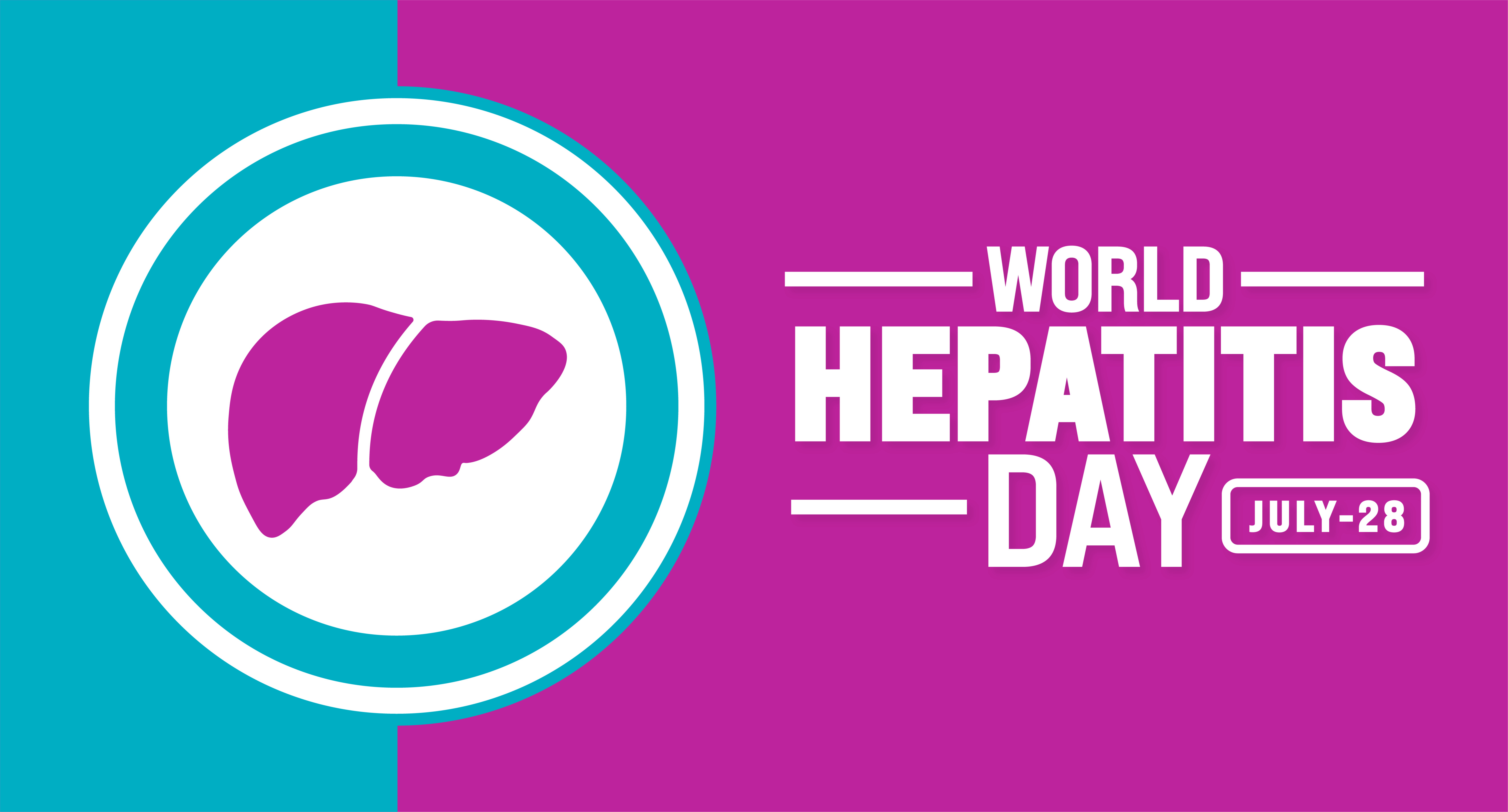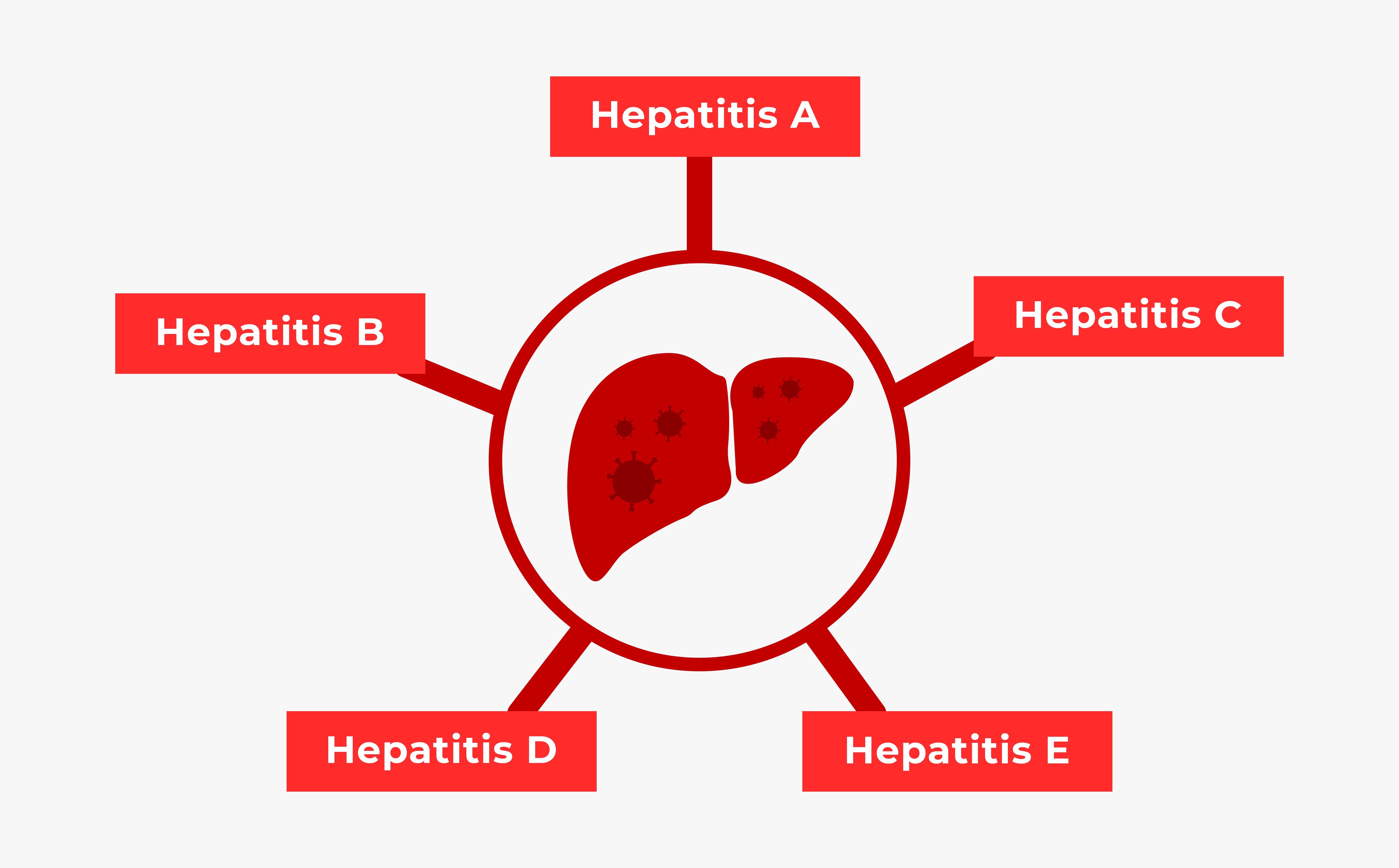- Date Published:
- Category: Health Awareness, Liver
Hepatitis Basics for World Hepatitis Day

July 28th is World Hepatitis Day and in an effort to do our part in increasing awareness and spreading education on hepatitis, we want to share some basic information about the world’s most common type of liver infection - hepatitis.
What is hepatitis?
Hepatitis refers to the inflammation of the liver. This inflammation can result from various causes, including viral infections (known as viral hepatitis), exposure to chemicals, drug use, alcohol consumption, specific genetic disorders, or an overactive immune response that attacks the liver, referred to as autoimmune hepatitis.
Hepatitis can be acute, meaning it appears suddenly and resolves on its own, or chronic, which is a long-lasting condition that often leads to gradual liver damage with less noticeable symptoms.
Types of hepatitis

In the United States, the most common types of hepatitis are A, B, C. Below is an overview of each.
What is hepatitis A?
Hepatitis A is mostly a food-borne illness and can be spread through contaminated water and unwashed food. Typically, Hepatitis A does not cause any complications or lead to a long-term (chronic) infection. For most people, their liver will recover within a couple months. Most often hepatitis A spreads when an unvaccinated person ingests food or water that is contaminated with the feces of an infected person.
Hepatitis A is more common in low-income countries and regions that have unsafe food and water, inadequate sanitation and poorer personal hygiene standards.
Symptoms of Hepatitis A
Typically, people experience mild symptoms, but in some cases the symptoms can be severe. The most common symptoms are fever, malaise, abdominal discomfort, diarrhea, nausea, dark urine and jaundice
Treatment of Hepatitis A
There is no specific treatment for hepatitis A, but there is a hepatitis A vaccine available. It is recommended that all people who suffer from chronic liver disease, have a suppressed immune system or are traveling to areas with a high risk of hepatitis A get this vaccine.
What is hepatitis B?
Hepatitis B is the most common form of hepatitis in Asia and Asia Pacific and is a potentially life-threatening liver infection. Hepatitis B can develop into a chronic infection and increases a person’s risk of complications from cirrhosis and liver cancer. In most cases, hepatitis b is spread from mother to child at birth, but it can also be spread through exposure to blood and bodily fluids contaminated with the virus.
Symptoms of Hepatitis B
Most people don’t experience symptoms when first infected or at all unless their infection progresses to a chronic infection. Symptoms can include fatigue, vomiting, abdominal pain, jaundice, dark urine. Recovery within six months is what most infected people experience.
Treatment of Hepatitis B
Acute hepatitis B (a shorter infection) resolves on its own while chronic hepatitis B requires medication to suppress the virus and reduce the long term medical complications. The treatment is very safe and effective and is often necessary lifelong for infected people. A hepatitis B vaccine is available and is recommended, especially for sexual partners of infected individuals.
What is hepatitis C?
This is the most common form of chronic hepatitis in the United States. Hepatitis C can cause an acute or chronic infection, with most people who become ill with hepatitis C developing a chronic infection decades later. It is one of the leading causes of cirrhosis and liver cancer.
Hepatitis C is a bloodborne virus that is commonly transmitted through the sharing of injection equipment in recreational drug use, infected medical equipment and unscreened blood transfusions.
Symptoms of Hepatitis C
In most cases, this virus does not cause any symptoms. When symptoms do occur, it is usually at an advanced stage.The best known symptom of hepatitis C is jaundice, the yellowing of skin and whites of eyes. Not everyone will experience jaundice; more common are flu-like symptoms (fever, fatigue, body aches).
Treatment of Hepatitis C
Hepatitis C medications are known as direct-acting antivirals (DAA) and work to destroy the hepatitis C virus. Treatment can take 8-12 weeks and is highly successful in curing people (more than 95% of people are cured). If cirrhosis, the scarring of the liver, has occurred, treatment can be impacted. Currently, there is no hepatitis c vaccine to prevent infection, but breaking the chain of transmission through safe practices is key to prevention.
If you or a loved one wants to get screened for hepatitis or learn more about managing these infections, The Liver Institute has multiple locations throughout Texas and we specialize in the treatment of hepatitis.
To get in touch, contact us here.
This article has been medically reviewed by Parvez Mantry, MD, Medical Director, Liver Institute Research; Medical Director, Hepatobiliary Tumor Program.


